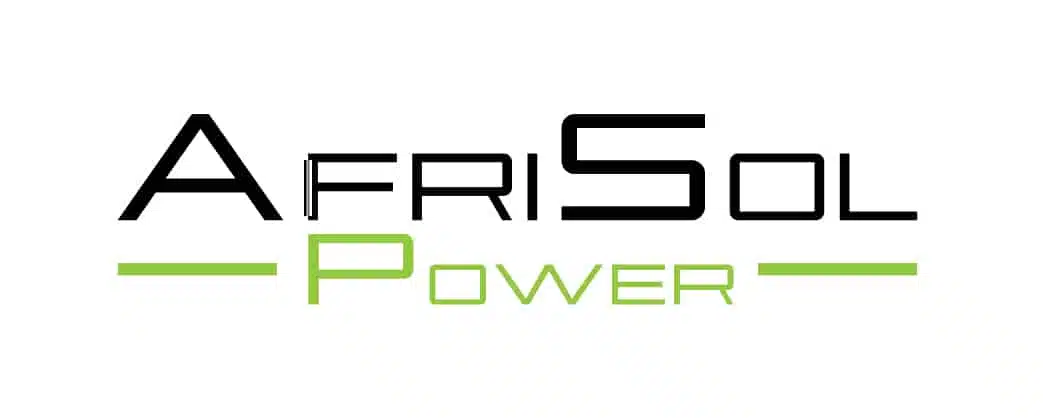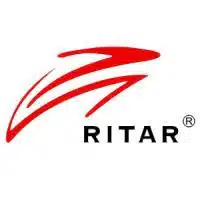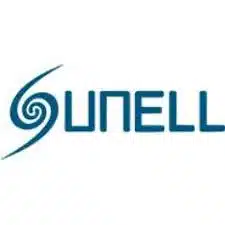Blogs
Choosing the Best Solar Installer: Key Questions to Ask
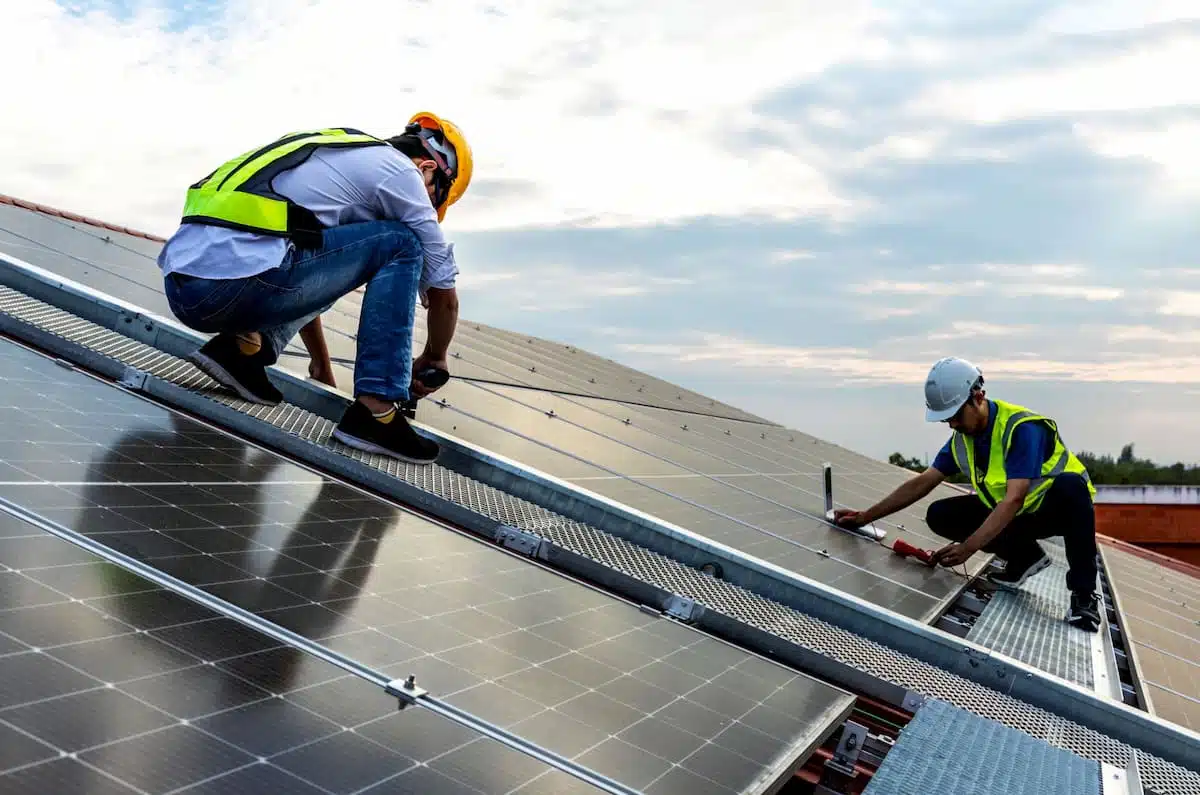
Choosing the Best Solar Installer is crucial as solar energy adoption continues to grow in Ghana and across Africa. More homeowners and businesses are investing in solar systems to reduce electricity costs and ensure reliable power. However, the success of your solar investment depends largely on selecting the right installer. A qualified installer ensures that your system is designed, installed, and maintained properly for maximum efficiency and safety.
With many companies entering the solar market, it’s important to know how to separate professional installers from inexperienced ones. In this article, we’ll discuss the key questions to ask before hiring a solar installer and what to look for to ensure you get the best value for your investment.
Why Choosing the Right Solar Installer Matters
Installing solar panels is a long-term investment — most systems last 25 years or more. A poorly designed or incorrectly installed system can lead to reduced efficiency, electrical hazards, or unnecessary maintenance costs. A reliable installer ensures:
-
Proper system sizing and placement for maximum energy generation.
-
Compliance with Ghana’s Energy Commission and local electrical standards.
-
Safe installation of wiring, inverters, and battery systems.
-
Long-term performance monitoring and support.
Choosing the right installer not only guarantees performance but also protects your investment for decades.
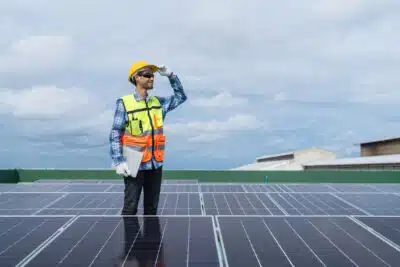
1. Are You Certified and Licensed?
The first and most important question to ask any solar installer is whether they are certified and licensed. In Ghana, all solar installers are required to be certified by the Energy Commission of Ghana or an equivalent renewable energy authority. Certification ensures the installer has the proper training and follows approved safety standards.
Tip: Ask to see the installer’s certification documents or verify them through the Energy Commission’s official website.
A certified installer will also be familiar with Ghana’s Renewable Energy Act and net metering regulations, which govern how solar systems interact with the national grid.
2. What Experience Do You Have with Solar Installations?
Experience is a key factor in ensuring the success of your solar project. Ask the installer how long they have been in the business and how many installations they have completed.
A company with a proven track record is more likely to handle challenges effectively and deliver a high-quality system. Ideally, choose a company that has completed:
-
Multiple residential and commercial solar installations.
-
Projects similar in size and complexity to yours.
-
Work that includes both on-grid and off-grid systems.
Ask for references or photos of past installations. Speaking with previous clients can give you insight into the installer’s reliability, professionalism, and customer service.
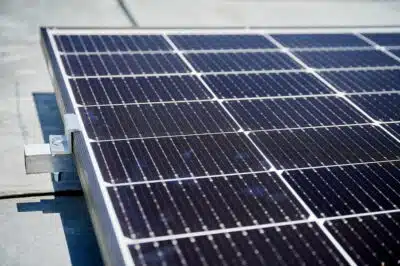
3. What Type of Solar Panels and Equipment Do You Use?
Not all solar panels and components are created equal. Some are designed for maximum efficiency, while others prioritize affordability. A reputable installer should provide clear information about the brands and models they use and explain why they recommend them.
Here’s what to check:
-
Solar Panels: Look for Tier 1 panels from trusted manufacturers with long warranties (typically 25 years).
-
Inverters: These convert DC power from the panels to AC power for your home. Quality inverters from brands like SMA, Huawei, or Fronius are preferred for durability and performance.
-
Batteries (if applicable): If you’re going off-grid or using hybrid systems, ensure the batteries are high-quality lithium-ion or lead-acid with at least a 5–10 year warranty.
Pro Tip: Avoid installers who can’t clearly explain the performance and warranty terms of the equipment they’re offering.
4. Can You Provide a Site Assessment and Energy Audit?
Before giving a price quote, professional installers should conduct a site assessment and energy audit. This helps them determine:
-
Your average energy consumption.
-
The best location for panel installation.
-
Roof strength and orientation.
-
Shading and potential obstructions.
An installer who skips this step and provides a quote over the phone is likely to offer a poorly designed system. A proper assessment ensures your solar panels produce maximum power throughout the year, even in Ghana’s tropical climate.
5. What Financing Options or Payment Plans Do You Offer?
Solar systems are a long-term investment, and while costs have dropped significantly, the upfront price can still be high for many homeowners. A reliable installer should be transparent about pricing and offer flexible financing options.
Ask if the company provides:
-
Payment plans or installment options.
-
Partnerships with banks or microfinance institutions for solar loans.
-
Pay-as-you-go (PAYG) systems, which are popular in Ghana and allow homeowners to pay small amounts monthly.
Also, confirm whether the installer helps clients access government incentives, such as import duty exemptions on renewable energy equipment.
6. What Warranties and After-Sales Support Do You Provide?
A good solar installer stands behind their work. Always ask about warranty coverage and after-sales service before signing a contract.
You should receive:
-
Product warranty: Covers defects in panels, inverters, and batteries (usually 10–25 years for panels).
-
Workmanship warranty: Covers the installation itself, typically for 2-5 years.
-
Performance guarantee: Ensures the system produces a minimum percentage of its rated capacity over time.
Also, check whether the installer offers maintenance packages or remote system monitoring. Regular maintenance is key to ensuring your solar system performs efficiently for years.
7. What Happens If My System Has Issues?
Even the best solar systems may face occasional issues such as inverter errors or connectivity problems. Ask the installer:
-
How quickly they respond to service calls.
-
Whether they provide remote troubleshooting.
-
If spare parts are locally available.
A reliable installer should have a dedicated support team and clear response times for technical assistance.
8. How Long Will the Installation Take?
The installation timeline depends on the system size, site conditions, and permits required. Typically, a residential installation in Ghana takes 3 to 7 days. Larger or more complex projects may take longer.
Ask your installer to provide a realistic project timeline with milestones – from equipment delivery to final system testing and connection.
Conclusion
Choosing the right solar installer is just as important as choosing high-quality panels and batteries. A professional, certified, and experienced installer ensures your solar system operates efficiently, safely, and cost-effectively for years to come.
By asking the right questions – about certification, experience, equipment quality, warranties, and after-sales support – you can confidently invest in a solar system that meets your energy needs and budget.
With Ghana’s abundant sunshine and growing renewable energy sector, there’s never been a better time to switch to solar. The right installer will not only help you harness clean energy but also guide you toward long-term energy independence and savings.







